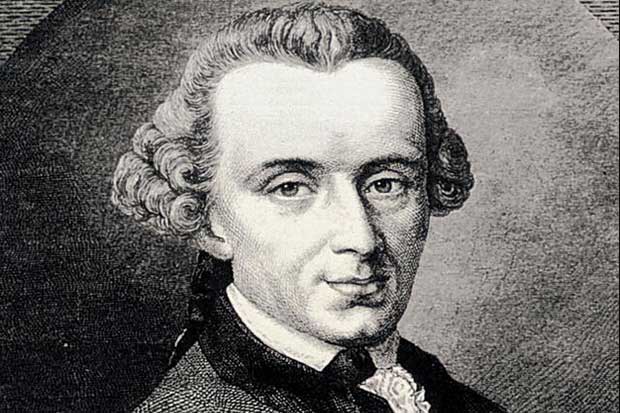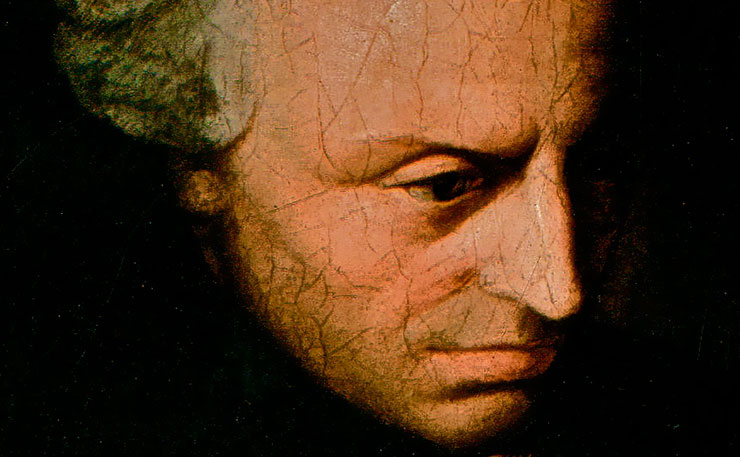Given the recent Liberal spill and now murmurs of a wet liberal resurgence, it is time for self-reflection on the part of the Liberal Party. And as a scholar who works on foundational figures of the liberal intellectual tradition, I would like to suggest that the debates surrounding the vexed legacy of Immanuel Kant offer a few lessons for deliberating between the competing brands of liberalism, wet and dry, that have been with this tradition since its beginning.
The Liberal Party likes to identify itself with economic freedom, of individuals and markets; what it sadly has come to neglect is the moral tradition embodied by its name.
As millions of refugees flee wars in the hopes of achieving human dignity, now is the time for the Liberal Party to acknowledge that its intellectual legacy is not simply financial and national, but indeed profoundly moral and cosmopolitan. It is a legacy that would support a very different refugee policy, one that privileges human need over economic and national self-interest.
A towering figure of the European Enlightenment, Immanuel Kant is the father of modern liberalism, humanism, and internationalism. In the past 20 years, however, there has been renewed scholarly debate over Kant’s legacy, and it is now safe to say that there were two Immanuel Kants, one a Eurocentric apologist for European colonialism and the other a visionary beacon of a truly international world.
Since the publication of Emmanuel Chukwudi Eze’s 1997 article, ‘The Color of Reason’, there has been a slow but steady recognition in academic circles that the great foundational thinker of liberalism, humanism, and internationalism was indeed also a racist.
This is the Kant who writes in unpublished, and only recently unearthed notes, that “[Native] Americans and negroes cannot govern themselves” and “thus are good only as slaves.” This is the Kant who believes that in the course of historical progress “All races will be wiped out… except for the white.”
And while some scholars have attempted to separate this Kant from the other one, the truth is that his racism was pervasive. Even in his much-lauded theory of cosmopolitanism, which envisioned a global federation of republics bound together by a respect for human freedom, Kant includes the suggestion that “our continent,” meaning Europe, “will probably legislate eventually for all continents.”
In response to these revelations, many scholars have argued that we should dismiss Kant and the liberal tradition he helped found as one long, ultimately racist apologia for European colonialism. And today, right now, in debates over Prime Minister Turnbull’s new refugee policy, the Liberal Party has a chance to prove these scholars wrong.
While it may seem entirely abstract, the intellectual answer to the dilemma of Kant’s racism hinges in large part on how we interpret his use of the term “providence” or “der Vorsehung.”
Kant describes the historical march to international governance as part of nature’s “original providence,” and for some critics, this is a sure sign of philosophical colonization. Upon the basis of a plan embedded within nature itself, Europe will “legislate” for all others. However, it must be said that another reading is possible, and it is this reading that the Liberal Party must revive.
Kant qualifies his idea of “original providence” by cautioning that our cosmopolitan salvation is not certain. For Kant, cosmopolitanism is not an object of manifest destiny, but instead is a possibility that ought to be inevitable because it is only the form of government and morality that coincides with our status as freely reasoning and thus dignified creatures.
Cosmopolitanism and universal human rights are ideals that only human actions can make real. This is the Kant who must be remembered, and it is precisely this Kant whom the Liberal Party has forgotten.

When untold thousands of human beings are denied the dignity of asylum and allowed to rot in privately-run detention centers, Australia acts as if only the racist Kant ever existed. What Australia and other liberal countries face right now is not simply a refugee crisis; no, it is a crisis with their selves.
Now is the time for the Liberal Party to act on behalf of its own tradition and to adopt a truly humanitarian refugee policy. It is time to show the validity of Kant’s assertion that human beings are literally precious, and that for this reason, they stand “under the law that each of them is to treat himself and all others never merely as means but always… as ends in themselves.”
Human beings are not to be treated as objects of economic or political calculations because they possess “an inner worth” or “dignity” that sets them apart from all other things.
When Australia turns away human beings from its borders in the name of national stability, prosperity, or order, it degrades both them and its own population as mere means, as objects to be enriched, exploited, or discarded as if all merely things.
What the Liberal Party in particular betrays in this process is not some dusty abstract ideal; what it betrays is its very self.
* Dr. Spencer Jackson is an A.R.C Postdoctoral Fellow at the Centre for the History of Emotions at The University of Queensland. He works on 18th century British literature and continental philosophy. His writing has appeared in Studies in Romanticism, SubStance, and The Eighteenth Century: Theory and Interpretation, and he is currently finishing a book titled ‘God Made the Novel.’
Donate To New Matilda
New Matilda is a small, independent media outlet. We survive through reader contributions, and never losing a lawsuit. If you got something from this article, giving something back helps us to continue speaking truth to power. Every little bit counts.




